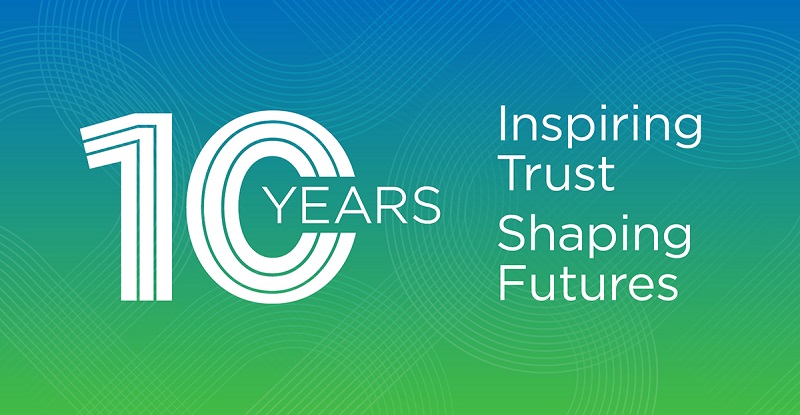
The technology industry has steadily grown and matured over the last decade to become a key sector in the British Columbia economy. According to the Profile of the British Columbia Technology Sector: 2017 Edition released by BC Stats, the high-tech sector now employs more people than the mining, oil and gas, and forestry sectors combined. Moreover, in 2016, it accounted for 7% of the province’s GDP1.
The success of BC’s tech industry is also being recognized globally. Bloomberg Businessweek called Vancouver “the new tech hub,”2 and the city ranked as the top startup ecosystem in Canada and fifteenth best in the world in the 2017 edition of the Global Startup Ecosystem Report.3
Film and television production is also thriving. Take, for example, Creative BC’s4 projection for BC film and television production expenditures in 2016-2017: at $2.6 billion, this marked an increase of 35% from the previous year and was the highest amount ever projected.
Tax incentives designed to attract new and innovative companies to BC, along with skilled workers, have bolstered both sectors. These tax incentives continue to evolve to meet the needs of industry and the provincial government. To date, tax incentives are available to support investments into small businesses, research and development, and specific sectors such as digital media, animation, and film and television production. This article reviews just some of the credits available to eligible corporations and individuals in the technology and entertainment sectors.
Small business venture capital tax credit
The small business venture capital tax credit was established to encourage investors to make early-stage venture capital investments in BC small businesses to help them develop, grow, and mature.
To qualify for the tax credit, investments must be made in either a registered venture capital corporation (VCC) or an eligible business corporation (EBC). A VCC “is formed for the sole purpose of investing in start-ups and emerging and expanding eligible small businesses."5
Under the direct investment model, an EBC can accept equity capital directly from investors. To qualify as an EBC, a corporation must meet several criteria in relation to its business activity, employment levels, and presence in BC.
The small business venture capital tax credit can be applied against provincial income taxes payable and can be carried forward up to four years. Individual investors are entitled to a 30% refundable tax credit, up to an annual maximum of $60,000. Corporate investors are entitled to a 30% non-refundable tax credit, with no annual limit.
Tax credit budgets are limited and are available on a first-come, first-serve basis. Starting in 2017, the budget for the small business venture capital tax credit increased from $35 million to $38.5 million, allowing for an increase of $11.7 million in additional equity capital for qualifying businesses each year.
BC scientific research & experimental development (BC SR&ED) tax credit
The BC SR&ED tax credit, which mirrors the federal tax incentive, is intended to encourage corporations to perform research and development (R&D) that will lead to new or improved scientific or technological advancements. The fall 2017 provincial budget update extended the BC SR&ED program to September 1, 2022.
Corporations that are Canadian-controlled private corporations (CCPCs) receive a refundable tax credit, which is 10% of the lesser of:
- The amount of qualified SR&ED expenditures incurred in BC in the year; or
- The expenditure limit (generally $3 million).
Any amount claimed over the expenditure limit is non-refundable. Corporations that are not CCPCs can claim a non-refundable credit. Qualifying expenditures include the wages for employees working on SR&ED projects, the cost of materials, and the cost of using subcontractors. Certain overhead costs can also be claimed.
A thorough analysis should be performed to determine whether R&D projects are considered qualifying projects for SR&ED purposes. A project description must be submitted along with the financial claim.
Interactive digital media tax credit (IDMTC)
BC’s IDMTC has been available for eligible registered corporations that develop interactive digital media products since 2010. The credit is calculated as 17.5% of eligible salary and wages incurred prior to September 1, 2018, and is refundable once it has been applied against provincial income taxes payable.
The following changes to the program will affect taxation years ending after February 22, 2017:
- Corporations whose annual qualifying labour expenses in BC exceed $2 million will not have to meet the principal business criteria (this criteria requires that an applicant’s principal business is the development of interactive digital media products).
- Corporations that also participate in the small business venture capital program will be able to apply for the IDMTC as long as they meet the other eligibility requirements.
In the September 2017 budget update, the BC government did not comment on whether augmented and virtual reality projects will be eligible to claim the IDMTC.
Note that the IDMTC cannot be claimed if a BC SR&ED claim has been submitted on the same eligible costs. There may be some tax-planning strategies available to determine which incentive would be more beneficial.
Film and television tax incentives
Film and television tax credits are aimed at accredited production companies that produce or provide services to accredited film and/or video productions. The tax credits are available to both domestic and foreign production companies. BC’s program mirrors the federal program and encompasses five distinct tax credits:
- Basic tax credit – There are credits available under two programs:
- The Film Incentive BC (FIBC) program offers a labour-based, 35% refundable tax credit to Canadian-controlled production companies. This tax credit is subject to Canadian content requirements.
- The Production Services Tax Credit (PSTC) offers a labour-based, 28%-refundable tax credit to domestic or foreign production companies that incur eligible labour expenses in BC. The PSTC has no Canadian content requirements.
- Regional tax credit – If more than 50% of principal photography is completed outside the Vancouver area, the tax credit rate under the FIBC program is 12.5%. The rate is 6% under the PSTC.
- Distant location tax credit – If principal photography is completed in a prescribed area, an additional 6% can be claimed under either the FIBC program or the PSTC.
- Film training tax credit – Offered under the FIBC program, this tax credit is available if a production employs individuals in an approved training program. The rate of 30% applies to qualified BC labour expenditures.
- Digital animation, visual effects and post-production (DAVE) tax credit – 16% of qualified BC labour that is directly attributable to DAVE activities can be claimed under either the FIBC program or the PSTC. To claim the DAVE tax credit, the corporation must be eligible for the basic tax credit.
These credits are fully refundable, but they must first be applied against provincial income taxes payable and cannot be carried forward or back.
Final thoughts
As you can see, there are various tax incentives available to corporations and individuals that are involved, or looking to get involved, in the technology and entertainment sectors. These incentives continue to grow and evolve in response to industry and policy changes.
If a taxpayer is considering claiming one of these tax credits, they should perform a thorough analysis to determine which claim will be the most beneficial and whether all of the eligibility requirements have been met.
Jessica Yuen, CPA, CA is a manager in tax services at PwC Vancouver, where she specializes in Canadian corporate tax with a particular focus on the technology and life sciences sectors. She would like to thank Melanie Campbell, CPA, CA, a senior tax manager at PwC, and Ian Heine, CPA, CA, a tax partner at PwC, for their advice and guidance on this article.
Previously published in March/April 2018 issue of CPABC in Focus magazine.
1BC Stats, Profile of the British Columbia Technology Sector: 2017 Edition, November 2017.
2Karen Weise, “Vancouver, the New Tech Hub,” Bloomberg Businessweek, May 27, 2014.
3Startup Genome, The 2017 Global Startup Ecosystem Report, December 2017. Version 1.8.
4Creative BC is an independent not-for-profit organization that collaborates with industry and government to support BC’s film, television, music, interactive digital media, and book and magazine publishing industries
5https://www2.gov.bc.ca/gov/content/employment-business/investment-capital/venture-capital-programs/venture-capital-corporation



